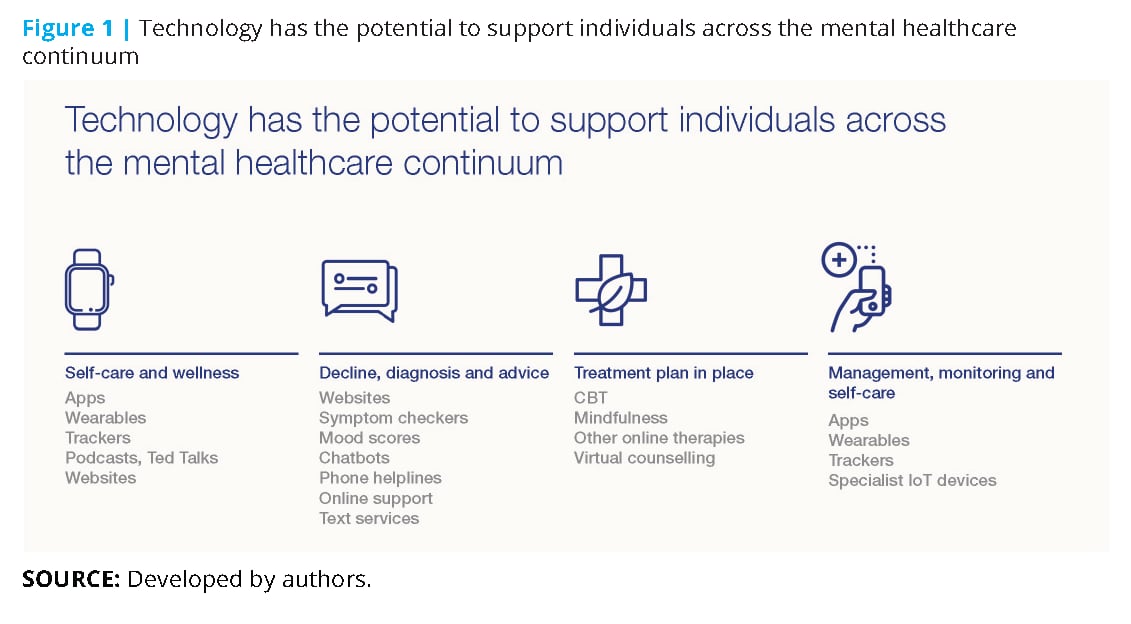3 ways to protect your mental health during – and after – COVID-19

How can we boost our mental health in the COVID-19 era to develop a healthier and more resilient “new normal” for the future? Image: REUTERS/Lee Smith

Explore and monitor how COVID-19 is affecting economies, industries and global issues

Get involved with our crowdsourced digital platform to deliver impact at scale
Stay up to date:
COVID-19
- Understanding how the COVID-19 pandemic and measures to prevent the virus' transmission affect our mental health can help us adapt;
- From focusing on everyday boosts to mental health to empowering our communities, these expert recommendations can help.
- Improving our mental health hygiene now could help us create a “new normal” for mental well-being in the future.
How many of us right now are experiencing a heady cocktail of confusion, anxiety and even some surprising moments of respite from our pre-COVID-19, always-on-the-go culture?
In a new survey by the Kaiser Family Foundation, 45% of Americans felt that the coronavirus crisis is harming their mental health (19% felt it had a “major impact”).
Our traditional media and social media feeds are filled with urgent and often conflicting imperatives to change our routines and be constantly vigilant.
The online onslaught of rapidly updating media stories reporting worst-case scenarios can fuel fear and panic. Uncritical overconsumption of such messages can erode one of our most precious and essential human resources for weathering the COVID-19 storm: our mental health.
Even before the virus outbreak, depression and anxiety have been noted as defining features of our times. Isolation and uncertainty are not going to help us deal with the new realities of our newly virtual lives – virtual work, virtual schools and virtual family care – under the incredible stress of unfamiliar circumstances.
How can we boost our mental health in the COVID-19 era to minimize the impact of the virus and the “social distancing” in our lives, and to develop a healthier and more resilient “new normal” for the future? Will we finally pay serious attention to the link between stress regulation and our health and well-being?
Firstly, there are five facts about stress, the brain and mental health that can help. There is virtually no disease, illness or injury that is not aided by good mental health. Why?
1. Our brains and our immune system are deeply linked to each other. The immune system is the prime mediator of environmental agents such as microbes, chemicals and the infamous COVID-19. It is intimately linked to our mood and to a number of brain maladies from Alzheimer’s disease to stroke and depression.
2. Stress is normal and can be healthy (and spur healthy behaviours: think of a zebra trying to escape a rapidly approaching lion), but too much sustained stress is not. High and unregulated levels of stress have a number of negative consequences on the brain, immunity and the vascular system, leading to blood sugar imbalances, high blood pressure and impaired immunity and inflammatory responses – the very precise opposite of what we need to fight the potential impact from COVID-19 exposure.
3. Physical exercise is an essential component of improving both physical and mental health and regular exercise has been linked to changes in brain connectivity, and increases in brain growth factors (e.g. brain-derived neurotrophic factor) and decreases in oxidative stress which damages cells and tissue.
4. Mindfulness and relaxation techniques can improve mood and sleep quality through enhancing control over the body’s arousal system and focus as well as managing anxiety and concerns.
5. Investing in mental health pays long-lasting dividends. Studies have shown that future mental and physical health are related to previous investments in mental and physical health. The earlier the better – but it’s never too late.
These five facts show the significant physical and mental health challenge at hand – and a substantial opportunity. How do we put it all together?
1. Focus every day on what you can do and take action – no matter how small. Low-tech and even no-tech solutions matter, a lot. Go outside and appreciate nature (as allowed by your local guidelines) at a slower pace to get a daily dose of physical exercise, relaxation and vitamin D. Call that relative or friend you haven’t spoken to in a while. Practice in these next few weeks to be in the moment, more mindful and supportive of those around you. We can all learn to be more flexible and have acceptance (which is not the same as acquiescence) of what we can do with the present rather than what we cannot do.
2. Explore – even shape – the new mental health toolkit. COVID-19 is bringing massive attention to the growing resources available online. Let’s explore and master the full breadth of opportunities for meaningful social connection, mindfulness, self-care, distance learning, telemedicine and beyond. There’s no time like the present to review our use of tech in general and mental health tech in particular. Apps won’t magically grant wellness, sleep or an end to poor mental health, but they are tools that we can learn to use with wisdom.
The Global Future Council on Technology for Mental Health has issued a call to action to empower 8 billion minds via wise and ethical development and adoption of a wide array of emerging technologies.

In response to COVID-19, many developers are offering free online tools which can be used to spark more self-reflection and to develop better sleep, exercise and self-care habits.
Cultivating these habits can have significant and most timely effects such as changes in our immune systems. If widespread enough, this realization can revolutionize how we tackle general and mental health going forward.
3. Empower those around you. We can all take ownership of and be supportive and responsive to our communities – our families, neighbourhoods, work, societies. A recent US study has shown that the most effective public health messages in slowing the spread of COVID-19 are those that focus on considerations of duty and responsibility to family, friends, and fellow citizens, not just our own personal agenda.
What is the World Economic Forum doing about the coronavirus outbreak?
We’re in a moment of “increasing revelatory tension”; for the first time for many of us, we are seeing how the “old normal” in terms of both physical and mental health can take a backseat in the prioritizations of daily life.
We have an opportunity before us to establish an even stronger and more resilient global community, one that practises both physical and mental hygiene. Now is the time for individual and collective action to shift to a healthier “new normal” for all.
Don't miss any update on this topic
Create a free account and access your personalized content collection with our latest publications and analyses.
License and Republishing
World Economic Forum articles may be republished in accordance with the Creative Commons Attribution-NonCommercial-NoDerivatives 4.0 International Public License, and in accordance with our Terms of Use.
The views expressed in this article are those of the author alone and not the World Economic Forum.
Related topics:
The Agenda Weekly
A weekly update of the most important issues driving the global agenda
You can unsubscribe at any time using the link in our emails. For more details, review our privacy policy.
More on COVID-19See all
Charlotte Edmond
January 8, 2024
Charlotte Edmond
October 11, 2023
Douglas Broom
August 8, 2023
Simon Nicholas Williams
May 9, 2023
Philip Clarke, Jack Pollard and Mara Violato
April 17, 2023






